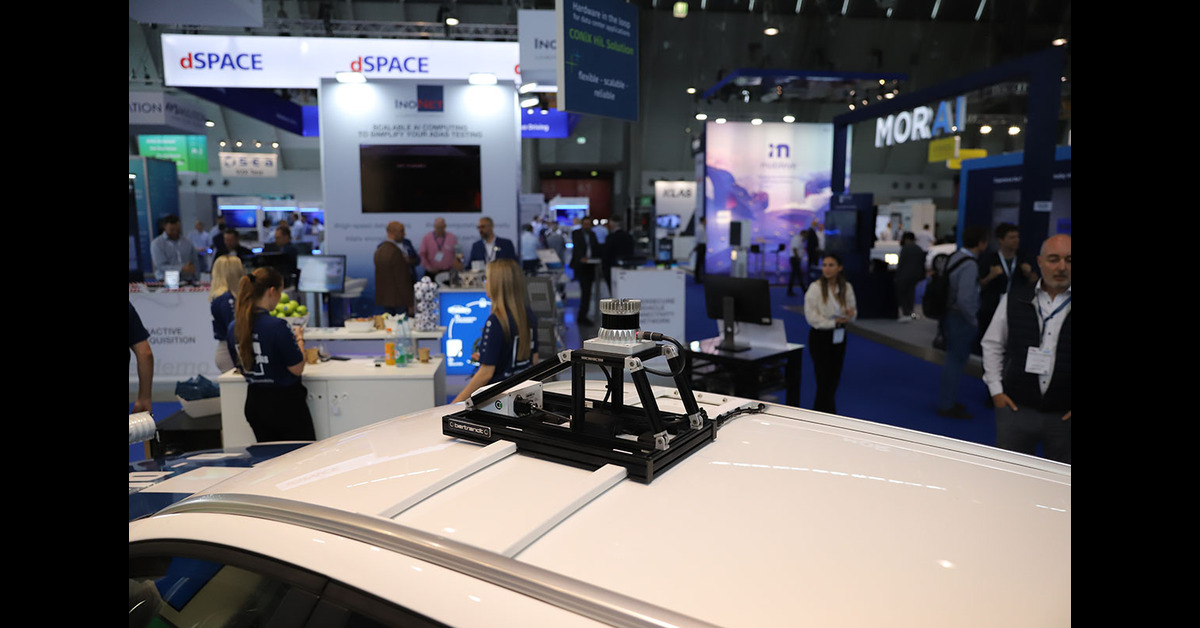In a groundbreaking development in the field of automated driving, ZF and Infineon Technologies have successfully integrated AI algorithms to enhance the control and efficiency of vehicle software. As part of the ambitious EEmotion project, which is co-funded by the German Federal Ministry for Economic Affairs and Climate Action, the two companies have demonstrated the potential of artificial intelligence (AI) to revolutionize automated driving systems.
AI-Driven Solutions: A Leap Forward in Automated Driving
The integration of AI into vehicle software has been tested and validated in a prototype vehicle, showcasing how this innovation can control and optimize various actuators during automated driving. The AI algorithms are applied to ZF’s existing software solutions—cubiX and Eco Control 4 ACC—both of which are crucial for the precise control of vehicle dynamics. These solutions are implemented on Infineon’s cutting-edge AURIX TC4x microcontroller (MCU), which features an integrated Parallel Processing Unit (PPU) for enhanced computing power.
This combination of advanced AI and state-of-the-art hardware enables superior control over vehicle actuators, improving vehicle performance, safety, and energy efficiency. By adding AI-driven algorithms, ZF and Infineon have taken significant steps toward improving the capabilities of automated driving systems, bringing more reliable, cost-effective solutions to the market.
Enhanced Driving Performance with AI
At the core of this advancement is the improved computing power brought by Infineon’s AURIX TC4x MCU. AI algorithms can now efficiently handle a multitude of tasks, including the optimization of lane changes, which are significantly more accurate compared to conventional methods without AI. This improvement in lane-change precision is a key feature in advanced driver assistance systems (ADAS), providing smoother, safer, and more reliable driving experiences for users.
Furthermore, AI contributes to more accurate decision-making processes by interpreting complex data in real-time. For instance, during lane changes, the AI considers multiple variables, such as surrounding vehicles, speed, and road conditions, to ensure the maneuver is executed smoothly and safely. This dynamic approach to decision-making is a marked improvement over traditional systems that rely solely on pre-programmed logic.
Energy Efficiency and Cost-Effectiveness: The Power of AI in ADAS
One of the most notable achievements of the EEmotion project is the increase in energy efficiency of driver assistance systems, particularly adaptive cruise control (ACC). ACC, which plays a vital role in maintaining safe distances between vehicles while optimizing fuel consumption, now benefits from AI’s ability to reduce power consumption while maintaining, and even improving, system performance.
This breakthrough is particularly important as the automotive industry increasingly focuses on sustainability and cost efficiency. With the enhanced performance and lower computing power demands provided by AI, ZF and Infineon are on track to deliver cost-effective Level 2+ assistance systems. These systems will allow manufacturers to offer more affordable advanced driving assistance features, bridging the gap between current Level 2 systems and the more complex and expensive Level 3 solutions that enable full self-driving capabilities.
AI Accelerates Time-to-Market for Automated Driving Solutions
The incorporation of AI into ZF’s existing software architecture has also led to faster development cycles. AI enables automation in testing and validation processes, reducing the time it takes to bring new features and updates to market. By leveraging AI-driven data analytics, ZF can rapidly identify performance bottlenecks, optimize software code, and improve overall system reliability.
“The EEmotion funding project shows that our artificial intelligence-based algorithms provide our customers with new advantages: AI makes it possible for products to be equipped with new functions and to be developed faster and more efficiently,” said Torsten Gollewski, Head of Research and Development at ZF.
AI’s role in enhancing the modularity of vehicle software allows manufacturers to quickly adapt to changing market demands. Whether it’s updating safety features or introducing new functionality, AI enables faster iteration cycles, ensuring that ZF’s solutions remain at the forefront of the ADAS market.
Infineon’s Semiconductors at the Heart of AI Innovation
Infineon’s AURIX TC4x MCU is the backbone of these new AI-driven solutions. Known for its powerful processing capabilities and energy efficiency, the AURIX TC4x is specifically designed to meet the rigorous demands of automated driving systems. Its integrated Parallel Processing Unit (PPU) enables it to run AI algorithms with exceptional efficiency, providing the high levels of computing power required for real-time decision-making in vehicles.
“With our world-leading semiconductor products, software, and services, Infineon enables customers to develop their own AI applications,” said Peter Schiefer, President of Infineon’s Automotive Division. “Our collaboration with ZF in the EEmotion project exemplifies how AI can be harnessed to achieve significant improvements in performance, safety, and cost efficiency for automated driving systems.”
The Future of AI in Automotive Technology
The successful testing and validation of AI algorithms in the EEmotion project signal the beginning of a new era in vehicle automation. As AI continues to be integrated into driver assistance systems, the automotive industry is poised to witness significant improvements in vehicle safety, performance, and energy efficiency.
With the combined expertise of ZF and Infineon, AI-driven solutions are expected to become a standard feature in future vehicles, paving the way for more advanced, reliable, and accessible automated driving systems. As a result, consumers can look forward to enhanced driving experiences that are not only safer but also more sustainable and cost-effective.
In conclusion, the EEmotion project highlights the transformative potential of AI in the automotive industry, providing a glimpse of what’s to come as the technology continues to evolve. ZF and Infineon’s innovations mark a major milestone on the road to fully autonomous vehicles, demonstrating the power of AI in making driving smarter, safer, and more efficient.







